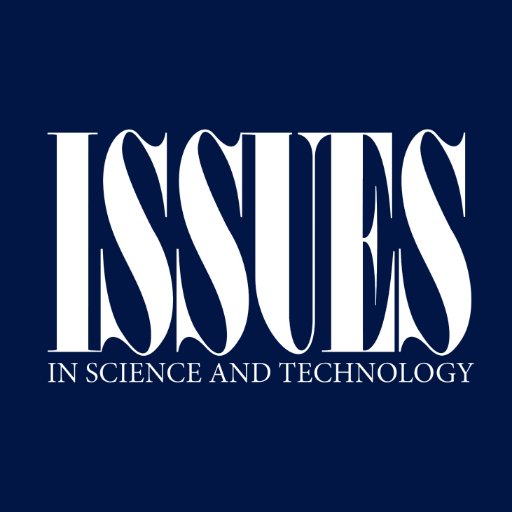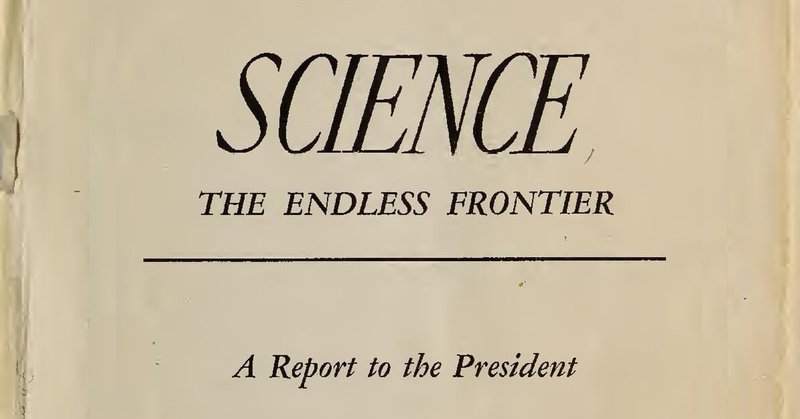
Issues in Science and Technology
@ISSUESinST
Followers
8K
Following
3K
Media
1K
Statuses
7K
ISSUES is an award-winning journal published by @ASU and @theNASciences devoted to the best writing on policy related to science, technology, and society.
Washington, DC | Phoenix, AZ
Joined April 2014
RT @IndrapramitDas: My short story 'The Song Between Worlds', about the paths of a one percenter space tourist & an indigenous worker cross….
0
3
0
“I don’t regret contrasting the obscenity of Earth’s wealth with the beauty and awe of Mars.” @IndrapramitDas revisits his 2019 Future Tense Fiction story, “The Song Between Worlds”: #speculativefiction.
issues.org
Indrapramit Das takes us to a future Mars full of wealthy space tourists to explore how tourism commodifies culture.
0
1
2
The chemical industry, once an engine of innovation, has become a dinosaur, argue @RogerTurner13, @jtickner, and Molly Jacobs. In their essay for our Summer issue, they explore what policies might re-awaken the industry and help it become more sustainable:
issues.org
The chemical industry’s last century is a story of highs and lows—both provide lessons that can be used to design its future.
0
0
1
RT @ShalinJyotishi: A take worth reading on #scipol reform debate by @ISSUESinST's @LisaMargonelli. Back to Vannevar Bush or to what's next….
issues.org
In this time of upheaval, what does it mean that so many advocates for science are pointing to an 80-year-old report by Vannevar Bush?
0
3
0
How should scientists navigate research that lies on a slippery slope between “unquestionably morally acceptable” and a “dystopian scenario that must be avoided”?. A group of ethicists & scientists propose a framework for building barriers on such slopes:
issues.org
The controversy around a ban on “mirror life” should lead to a more nuanced conversation about how to manage precursor biotechnologies.
0
0
2
Universities “unleashed an age of massive technical innovation,” @michaelcrow, William Dabars, & @DavidRosowsky write—but the social outcomes of their work fell short. For decades, @ASU has been redesigning itself to meet social AND technical challenges.
issues.org
American research universities have unleashed an age of massive technical innovation—but they’ve failed to innovate their own designs to meet the changing needs of society.
0
2
7
“Trust in science has lately emerged as the Snark of American politics.” . #STS scholar @SJasanoff employs two Lewis Carroll characters—the Snark and the Boojum—in explaining the “strangely undefined” quest to understand public trust in science.
issues.org
Does the American public distrust science—or have citizens lost trust in a political system that attempts to use science to resolve problems?
0
1
3
RT @SenToddYoung: Biotech has major implications for our economy and national security. I spoke with @ISSUESinST about how biotechnology c….
issues.org
Senator Todd Young shares his vision for how emerging biotechnologies can revolutionize agriculture, industry, and warfighting.
0
7
0
RT @theNASEM: In a new interview for @ISSUESinST, @SenToddYoung — current chair of the bipartisan National Security Commission on Emerging….
0
5
0
“Our commission envisions a future in which Americans engage with biotechnology the same way they do with cell phones and computers.”. Read our interview with Indiana’s @SenToddYoung, chair of the National Security Commission on Emerging Biotechnology:
0
0
0
RT @theNASEM: Neil Chilson from @abundanceinst discusses what it’s like to work at a #ThinkTank, the #AI questions motivating his #ScienceP….
0
1
0
Who doesn’t hate grant proposals? @UCDavisCCS’s @RyanMeyerSF and @SloanFoundation’s @MichelsonEvan—that’s who. Read their dialogue about finding the fun and creativity in the proposal process and their recommendations for making it better:
issues.org
The grant proposal process could be a place for innovation and an avenue for institutional change for universities and research.
0
1
1
Starting soon: How Did Science Become So Polarizing? . Register here:
asu.zoom.us
Zoom is the leader in modern enterprise video communications, with an easy, reliable cloud platform for video and audio conferencing, chat, and webinars across mobile, desktop, and room systems. Zoom...
"Trust in science has emerged as a central dividing line in our society," says a recent @ISSUESinST piece. How did that happen, and what can we do about it? I'm moderating a panel tomorrow in which some very smart people will grapple with those questions.
0
1
2
Federal science agencies rarely share publicly what grant proposals they choose *not* to fund, hamstringing #metascience efforts. @stuartbuck1 & @csmarcum make the case for why they should:
issues.org
Showing which proposals do and don’t receive federal funding can improve research and advance open science.
0
2
1
On the latest episode of our podcast series exploring what it’s like to have a career in #sciencepolicy, former White House Office of Science and Technology Policy director @kdroege reflects on his career and considers the future. Listen here:
issues.org
Former OSTP director Kelvin Droegemeier reflects on his career in science policy, and what he's currently working on in science policy.
0
1
3
RT @AEICTSE: How Did Science Become So Polarizing?. On Thursday @ 4:00, join @ISSUESinST for a panel feat. @AEI's Tony Mills about how scie….
issues.org
Join us on May 29, 2025 at 3PM ET for a discussion of why science is so divided, and how it can rebuild trust across the political spectrum.
0
1
0
“People matter more than research citations,” Kirshenbaum points out—scientists tend to overlook the realities of staffers’ needs. Read her recommendations for building sustained relationships across party lines: 6/6.
issues.org
Scientists need to learn how information flows to congressional staffers—and the crucial role they play in setting policy.
0
0
2














